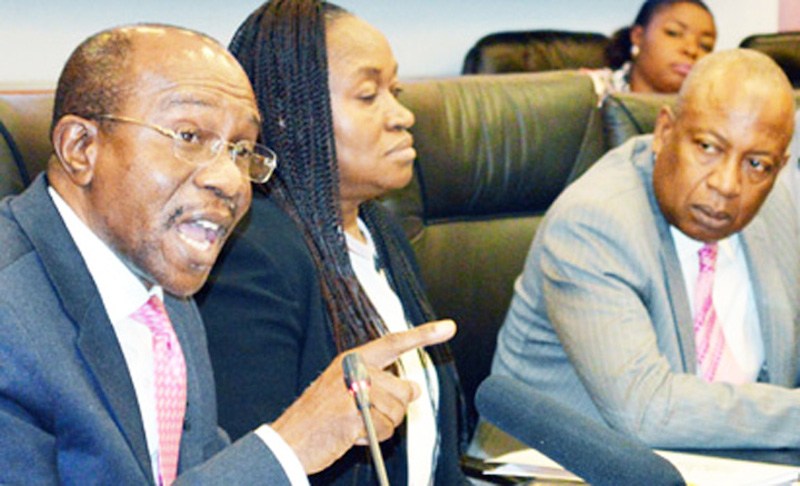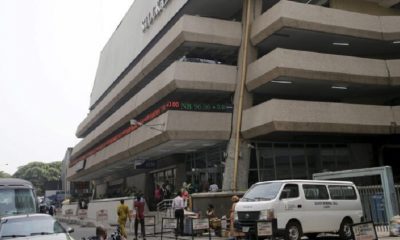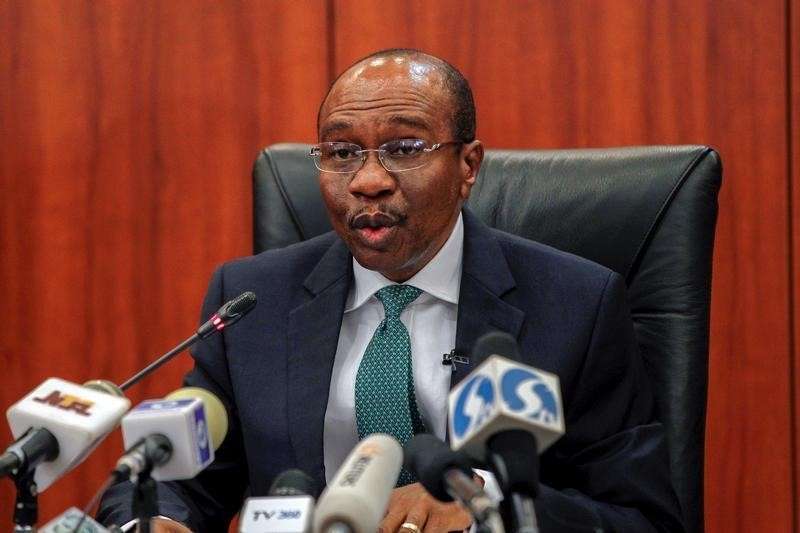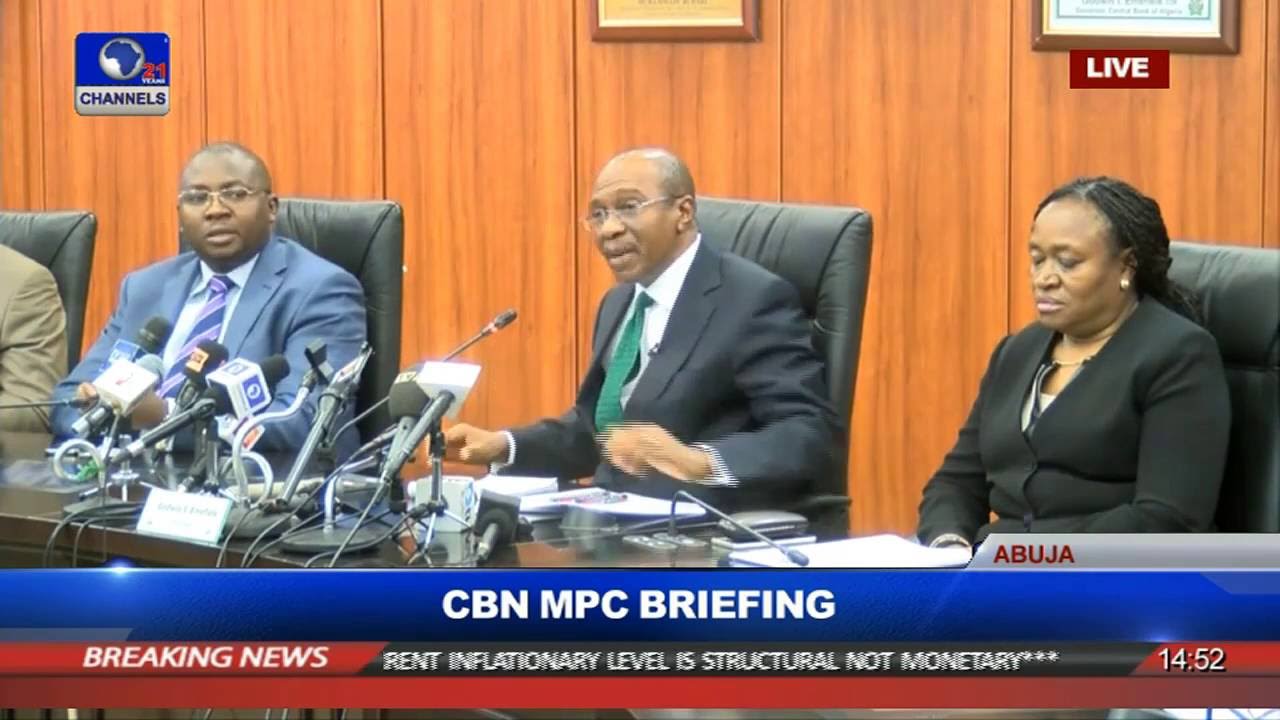Economy
MPC May Delay Hike in Rates Until January 2019—FSDH

By Dipo Olowookere
Ahead of the Monetary Policy Committee (MPC) meeting of the Central Bank of Nigeria (CBN), which kicks off tomorrow, analysts at Lagos-based FSDH Research have said the apex bank may not tamper with the monetary policy rate (MPR) until its January 2019 meeting.
Though the company noted that rising demand for foreign exchange leading to a consistent decline in the foreign reserves, and rising inflation rate were major justifications for an increase in policy rates, it maintained that the CBN may continue to use the conduct of Open Market Operations (OMO) to manage the temporary liquidity in the financial system that may affect price stability.
Business Post recalls that at its meeting in September 2018, the MPC maintained the MPR at 14 percent, with the asymmetric corridor at +200 and -500 basis points around the MPR; the Cash Reserve Ratio (CRR) at 22.50 percent and the Liquidity Ratio (LR) at 30 percent.
According to FSDH, a review of the global economy shows that global growth remains fairly strong, but trade restrictions may reduce global growth. This is according to the International Monetary Fund (IMF), which projects a global growth rate of 3.7 percent for 2018 and 2019.
The growth rate forecast is slightly lower than the growth rate projections the IMF released in July 2018. Although FSDH Research notes that despite the recent drop in the price of crude oil on the international market, the moderately strong global growth should sustain global crude oil prices around $70/b in the short-term.
FSDH Research says it expects the Federal Open Market Committee (FOMC) of the US Federal Reserve to raise the Federal Funds Rate (Fed Rate) by 0.25 percent when the committee meets in December 2018.
The October 2018 US unemployment rate at 3.7 percent (lower than the target of 6.5 percent), inflation rate of 2.5 percent (higher than the target of 2 percent) and the growth of 3.5 percent in the economy all support arguments for an interest rate increase.
The investment firm said an increase in the Fed Rate may further place additional demand pressure on foreign exchange in Nigeria and possibly increase capital flight from emerging markets. Thus, a rate cut in Nigeria is not appropriate under these situations.
It said the short-term forecast for the Nigerian economy shows that economic growth remains fragile. The IMF forecasts growth rates of 1.9 percent and 2.3 percent in 2018 and 2019 respectively. These growth rates are lower than the Nigerian population growth rate. Thus, the economy needs policy stimulus to record a growth rate that is inclusive. Nevertheless, monetary policy easing in the form of an interest rate cut may not stimulate growth. Appropriate fiscal measures and incentives that will improve the ease of doing business in Nigeria will lay strong foundation for sustainable growth.
The Purchasing Managers’ Index (PMI) survey published by the CBN for the month of October 2018 expanded at a faster rate. FSDH Research attributes the expansion in the PMI to the increased economic activities that are usually associated with the last quarter of the year.
FSDH Research said it observed a consistent drawdown in the external reserves in order to maintain foreign exchange rate stability in Nigeria.
The CBN increased the supply of foreign exchange at the Investors’ and Exporters’ Foreign Exchange Window and increased the yield at the OMO to dowse demand pressure at the foreign exchange market.
Consequently, the drawdowns from the external reserves continued until November 2018. CBN remained the largest supplier of foreign exchange at the I & E window in the last three months.
FSDH Research noted that an attractive Nigerian Treasury Bill (NTB) yield around the current level of 16 percent may help to attract foreign portfolio investment and reduce capital flight.
Nevertheless, there is a need for deliberate fiscal measures and engagements that will promote non-oil exports that attract foreign investment into Nigeria and will guarantee foreign exchange stability.
The inflation rate increased to 11.28 percent in September 2018, the second increase since January 2017, principally due to the increase in the Food Index.
FSDH Research says it expects inflation rate to increase marginally to 11.34 percent in October and to end the year 2018 at 11.7 percent.
It said an increase in food prices, electioneering spending, and a possible increase in the minimum wage, are potential factors that will influence the direction of the inflation rate in the next three months.
Despite the expected rise in the inflation rate, it will be difficult for a hike in the interest rate to stem the rising inflation rate, as the cause of the rising inflation rate is not within the scope of monetary policy.
According to FSDH, the MPC may deal with the possible negative impact of an increase in the minimum wage at its January 2019 meeting. Thus a hold decision may be appropriate.
Data from the CBN shows that the key monetary aggregates in the country are below the target the CBN sets for the country. This development supports an argument for an expansionary policy to boost credit creation.
However, the current structural rigidities in the economy do not support strong credit growth. Therefore, unconventional policies are required to boost credit creation and business expansion to stimulate growth.
Measures that remove the risks inherent in the economy will encourage credit expansion and this will support sustainable growth.
Economy
Uzoka-Anite Warns Against Inflation Risks from Oil, Gas Earnings Surge

By Adedapo Adesanya
The Minister of State for Finance and chairman of the Federation Account Allocation Committee (FAAC), Mrs Doris Uzoka-Anite, has cautioned that a projected surge in oil and gas revenues following President Bola Tinubu’s latest executive order could trigger inflationary pressures and exchange rate volatility if not carefully managed.
She said that the recent executive order mandating the direct remittance of certain oil sector revenues to the federation account would provide regulatory clarity and significantly strengthen revenues accruing to the federation account, but warned that sudden liquidity injections into the economy may complicate monetary policy coordination with the Central Bank of Nigeria and erode the real value of allocations to federal, state and local governments.
While addressing members of FAAC in Abuja, Mrs Uzoka-Anite commended President Tinubu on the order, describing the development as a structural fiscal correction aimed at restoring constitutional discipline to petroleum revenue management and enhancing distributable income across the three tiers of government.
She said that the revenue outlook was improving due to ongoing structural reforms introduced by the Federal Government.
According to her, the newly implemented tax reform measures are broadening the tax base, improving compliance and enhancing administrative efficiency.
“Also, the executive order signed by Mr President on February 13 is reinforcing revenue discipline in the oil and gas sector and reducing leakages,” she said.
The minister said that the order suspends the 30 per cent allocation to the Frontier Exploration Fund (FEF) and suspends the 30 per cent management fee on oil and gas profit payable to NNPC Limited.
She said that the order also directed that gas flare penalties be paid into the federation account, and mandated full remittance of petroleum revenues without unconstitutional deductions.
Mrs Uzoka-Anite said that the reform marks a shift from a retention-based oil revenue model to a gross remittance, federation-first model.
“The implications for FAAC are very significant; more oil and gas profit will now flow directly into the federation account.
“Gas flare penalties will become distributable revenue, and previously retained management fees will no longer reduce remittable inflows,” she said.
She said that the reforms were expected to result in higher monthly gross inflows into the federation account, and increased allocations to federal, state and local governments.
The minister said that a retrospective audit of the FFF, the Midstream and Downstream Gas Infrastructure, was due, and NNPC management fee deductions could lead to recoveries that may provide a one-off fiscal boost.
She welcomed the improved revenue outlook and cautioned against the risks associated with sudden liquidity injections.
“Experience shows that when revenues rise sharply and are distributed fully and immediately, large liquidity injections can increase inflationary pressures, complicate monetary management and reduce the real purchasing power of allocations,” she said.
She said that excess aggregate demand, exchange rate pressure, asset price distortions and inflationary risks could arise if increased inflows were not carefully managed.
Mrs Uzoka-Anite said that to mitigate such risks, she proposed phased disbursement of one-off recoveries.
She suggested that retrospective recoveries be staggered rather than injected into the economy in bulk, with a portion temporarily warehoused in a stabilisation buffer.
She also recommended strengthening the excess crude and stabilisation buffer mechanism to channel part of incremental inflows into a fiscal stabilisation window.
“This could offset revenue shortfalls in weaker months and reduce procyclicality in spending.
According to her, enhanced coordination with the CBN would be pursued to align fiscal injections with liquidity management tools and support open market operations where necessary.
Mrs Uzoka-Anite urged states and federal Ministries, Departments and Agencies (MDAs) to prioritise capital expenditure over recurrent expenditure.
She called for investment in infrastructure, agriculture, energy and other productive sectors, and avoid unsustainable wage or consumption spikes.
“Productive spending expands supply capacity and mitigates inflation,” she said.
She also announced plans to introduce monthly revenue transparency dashboards, production-to-remittance reconciliation reporting, and clear reporting of incremental inflows arising from tax reforms and the executive order.
The junior finance minister said that the reforms presented an opportunity to deepen fiscal federalism, enhance distributable revenue, restore constitutional clarity and strengthen trust among tiers of government.
She also advised that increased revenue must not translate into fiscal complacency.
“We must resist the temptation to treat incremental inflows as permanent windfalls. We should reduce debt burdens, clear arrears responsibly, build buffers and invest in growth-enhancing sectors,” she said.
Economy
Dangote Refinery Shares to be Available to Public in Five Months

By Adedapo Adesanya
The chairman of Dangote Group, Mr Aliko Dangote, has said that within the next five months, Nigerians should be able to purchase shares of Dangote Petroleum and Refinery.
Mr Dangote made this revelation on Sunday during a tour of the facility by the chief executive of the Nigerian National Petroleum Company (NNPC) Limited, Mr Bayo Ojulari, alongside members of the company’s executive management.
The $20 billion refinery is the largest single-train refinery in the world with 650,000 barrels per day refining capacity. There are efforts to boost the capacity to 1.4 million barrels per day soon.
Speaking with journalists, Mr Dangote said, “And the other issue is that they (NNPC) are holding 7.25 per cent of the shares that we have here, which is more than the shares Elon Musk has in Tesla. And they are holding that on behalf of Nigerians,” he said.
“So individually, Nigerians too will have an opportunity in the next, maybe a maximum of four to five months. There will actually be an opportunity to buy the shares.”
He added that shareholders will have the option to receive their dividends in either naira or dollars, as the refinery also earns in dollars.
Commenting on Mr Ojulari’s visit, the billionaire businessman said the NNPC, represented by Mr Ojulari and its management team, was not just a guest but a shareholder.
“Today is really our best day ever” at the facility. I know NNPC invested in us when we were not really sure whether the refinery would be successful.
“So that’s the kind of level of confidence. But right now, the relationship with the new set of people that we have at NNPC, I think the sky is the limit, and we will cooperate and also make sure that we work together to make sure that we make Nigerians proud.”
Speaking on prospects of partnership with NNPC in the upstream sector, he said, “We have block 71, 72, but we’re going to look much deeper”.
“Most likely, depending on our own discussions with them, we will partner with them, maybe in some of the upstream. They, too, will partner with us here because here is not just a refinery, it’s an industrial hub.
“And that’s why we’re doing linear alkaline benzene, which is a raw material for detergents, ” he added.
Economy
NGX Investigates Zichis Stocks After 859% Rise in One Month

By Aduragbemi Omiyale
The Nigerian Exchange (NGX) Limited has launched an investigation into trading activities on the shares of Zichis Agro-Allied Industries Plc.
A notice from Customs Street on Monday disclosed that this has led to the suspension of the company for now.
This development comes about a month after Zichis was listed on the domestic bourse and placed in the growth board of the NGX.
In the circular, it was disclosed that the suspension may be lifted after the conclusion of the findings, but for now, investors will not be able to trade the organisation’s securities on the NGX platform.
“The suspension of trading in Zichis shares shall be lifted upon the conclusion of an investigation into the trading activities on the company’s shares,” a part of the disclosure stated.
The bourse explained that it wielded the big stick on Zichis in compliance with Rule 7.0, Rules on Suspension of Trading in Listed Securities, Rulebook of The Exchange (Issuers’ Rules).
This part of the law states that, “Notwithstanding any of the foregoing provisions, the exchange may, in accordance with any of its rules, place the trading of any security on suspension.
“It may also do so if it is of the view that such suspension will be in the interest of the investing public and in accordance with the SEC Rules.”
In announcing the action on the firm, the NGX declared that, “The shares of Zichis Agro-Allied Industries Plc have been suspended from trading on the facilities of Nigerian Exchange Limited (NGX), effective today, Monday, February 23, 2026.”
Business Post reports that last week, shares of Zichis appreciated by 60.74 per cent to N17.36. It joined the stock exchange at N1.81, indicating it has gained N15.55 or 859.12 per cent in one month.
-

 Feature/OPED6 years ago
Feature/OPED6 years agoDavos was Different this year
-
Travel/Tourism10 years ago
Lagos Seals Western Lodge Hotel In Ikorodu
-

 Showbiz3 years ago
Showbiz3 years agoEstranged Lover Releases Videos of Empress Njamah Bathing
-

 Banking8 years ago
Banking8 years agoSort Codes of GTBank Branches in Nigeria
-

 Economy3 years ago
Economy3 years agoSubsidy Removal: CNG at N130 Per Litre Cheaper Than Petrol—IPMAN
-

 Banking3 years ago
Banking3 years agoSort Codes of UBA Branches in Nigeria
-

 Banking3 years ago
Banking3 years agoFirst Bank Announces Planned Downtime
-

 Sports3 years ago
Sports3 years agoHighest Paid Nigerian Footballer – How Much Do Nigerian Footballers Earn


















